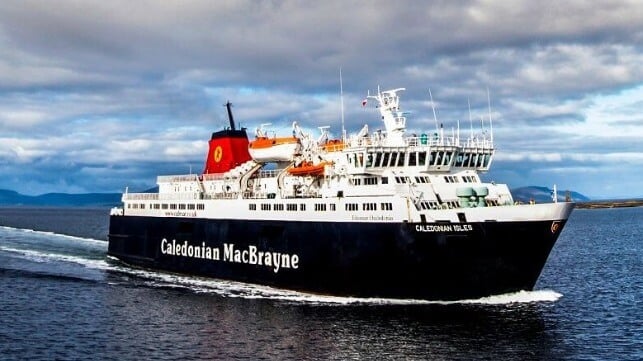Project Seeks Cost-Effective Shipboard Carbon Capture Solution

A new joint EU-UK project is seeking to develop retrofit carbon capture solutions to be used onboard in-service ships. The initiative, the Green Marine Project, is being led by the Cyprus Marine & Maritime Institute (CMMI) and brings together 10 partners from industry and academia from all over Europe and UK. The University of Strathclyde’s Department of Naval Architecture is leading the project’s research component.
The Green Marine team intends to develop and validate retrofitting protocol tools suitable for adapting engines, flue gas carbon capture, and an integrated energy-saving solutions for ships worldwide. The team proposes to develop a nano-particle suitable for gaseous streams to allow free-air reuse in enclosed areas resulting in savings on HVAC (Heating, Ventilation, and Air-conditioning) energy use. Utilizing such a pre-treatment technology, the team believes, will help to reduce OPEX costs of carbon capture technologies in flue gas streams.
In the first phase of the project, they plan to demonstrate the system onboard vessels operated by Caledonian MacBrayne (CalMac), the UK's largest ferry operator. They did not specify which of CalMac 33 vessels would be involved in this first phase of proof of concept tests. There is also a plan to replicate the project’s learnings to the larger global marine community of shipowners, shipyards, and equipment providers. To aid shipowners in their decision-making, the team reports it will also develop a software catalog that gathers knowledge on a vessel’s fuel efficiency.
“If we can develop solutions that can capture carbon emissions, we can accelerate the climate neutrality of existing fleets,” said Dr. Iraklis Lazakis, the Green Marine Project lead from Strathclyde University.
They illustrate the importance of the project by highlighting that existing, in-service vessels represent 13 percent of the total European transport carbon emissions. They could represent a critical part of the ongoing shipping decarbonization efforts.
In a new study by the Lloyd’s Register, the technology readiness level of onboard carbon capture, utilization, and storage was found to be high in the shipping industry. This compares with just a few years ago when experts doubted that carbon capture would be a viable technology on ships. The Lloyd’s report suggests the advancements could in part be attributed to the development and usage of carbon capture technology outside the maritime sector.

that matters most
Get the latest maritime news delivered to your inbox daily.
Meanwhile, the report highlighted several key gaps hindering the effective deployment of carbon capture technologies. The most critical one is the standardization of safety and operational procedures used in offloading liquefied CO2 from the carbon capture process. Additionally, regulations need to be updated to address some practical challenges, including carbon accounting and aligning onboard capture with MARPOL regulations.
The Green Marine Project is expected to run until January 2027. The EU and the UK are providing nearly $5.5 million in funding for the research.
